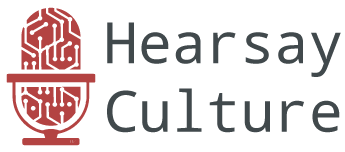If you’ve been paying attention to the links below recent show posts (and why wouldn’t you? Are you THAT busy?), you may have noticed a new link to Stitcher. For those who don’t know, Stitcher is a proprietary podcast listening app. Based upon listener requests, and my own interactions with some people who wanted to hear the show there, Hearsay Culture is now available at Stitcher. The show will remain available through the existing media, so you’re not required to migrate to Stitcher. So in a world of seemingly endless options, here’s another to consider. I hope that you find it useful!

